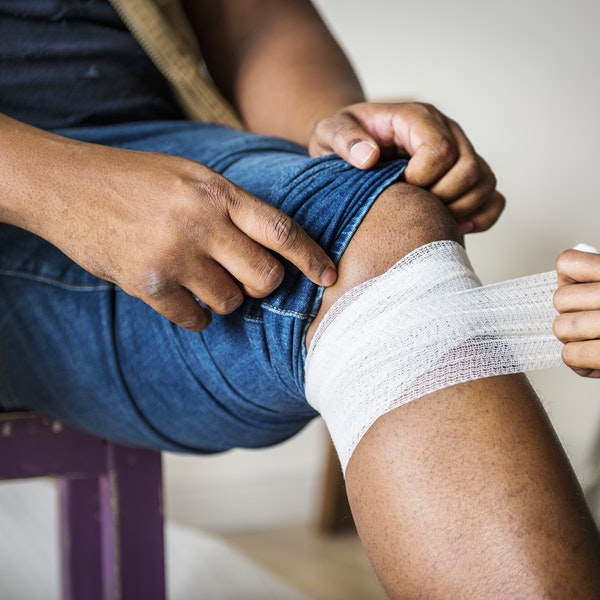
An ACL Sprain is an injury to one of the ligaments on the inside of the knee referred to as the Anterior Cruciate Ligament. This structure is made of tough connective tissue that, along with the PCL and Lateral Collateral Ligaments, hold the bones of your knee joint in place and give the joint its stability and integrity.
Severe pain and tenderness occur along the joint line. Sometimes a loud “pop” or “popping” sensation is felt in the knee. Usually swelling in the knee occurs within 24 hours of the injury. There is a loss of full range of motion and slight to moderate discomfort when walking. A feeling of instability or “giving way” with weight-bearing is common.
In all sprains, there will be a loss of joint integrity by the very nature of this condition. ACL sprains are graded according to severity:
Grade I: a ligament that is stretched but not torn
Grade II: indicating that ligaments are partially torn
Grade III: a fully torn ligament.
Each grade is measured by the amount of physical damage and loss of joint stability.
The fibers of the ligament are stretched, but there is no tear. There is a little tenderness to the touch, tenderness with use, and swelling. The knee does not feel unstable or give out during activity. Grade I sprains can take 2-4 weeks to heal
The fibers of the ligament are partially torn. There is moderate to severe tenderness and moderate swelling. The joint may feel unstable or give out during activity. Full weight bearing is unattainable and assistance is needed. Grade II sprains can take 4-12 weeks to heal.
The fibers of the ligament are completely torn. This can be referred to as a rupture of the ligament. The ligament itself has torn completely into two parts or has pulled away from the bone which is referred to as an Avulsion. There is tenderness; however, in some cases due to the full-thickness tear less pain is observed by the patient than one would assume.
There may be a lot of swelling and bruising around the area and distal to the area of complaint. The ligament cannot control knee movements. The knee feels unstable or gives out at certain times. In most cases, Grade III sprains do not knit back together and supportive measures must be taken.
Initially, application of ice to the knee every hour for 10-15 minutes is imperative to reduce swelling. Early rehab with a chiropractor or physical therapist is also key when experiencing an ACL Sprain, so as to not increase further damage or strain. Surgery is often needed if the injury is severe, but we will be able to advise you whether or not this is necessary.
If you need treatment for an ACL sprain in Knoxville, TN, call us at (865) 337-5574 today to schedule an appointment!
8029 Ray Mears Blvd, Suite 300
Knoxville, TN
37919
Phone: 865-337-5574
Monday
7am-12pm & 1pm-6pm
Tuesday
7am-12pm & 1pm-4pm
Wednesday
7am-1pm
Thursday
7am-12pm & 1pm-6pm
Friday
7am-12pm & 1pm-4pm
Saturday & Sunday
Closed